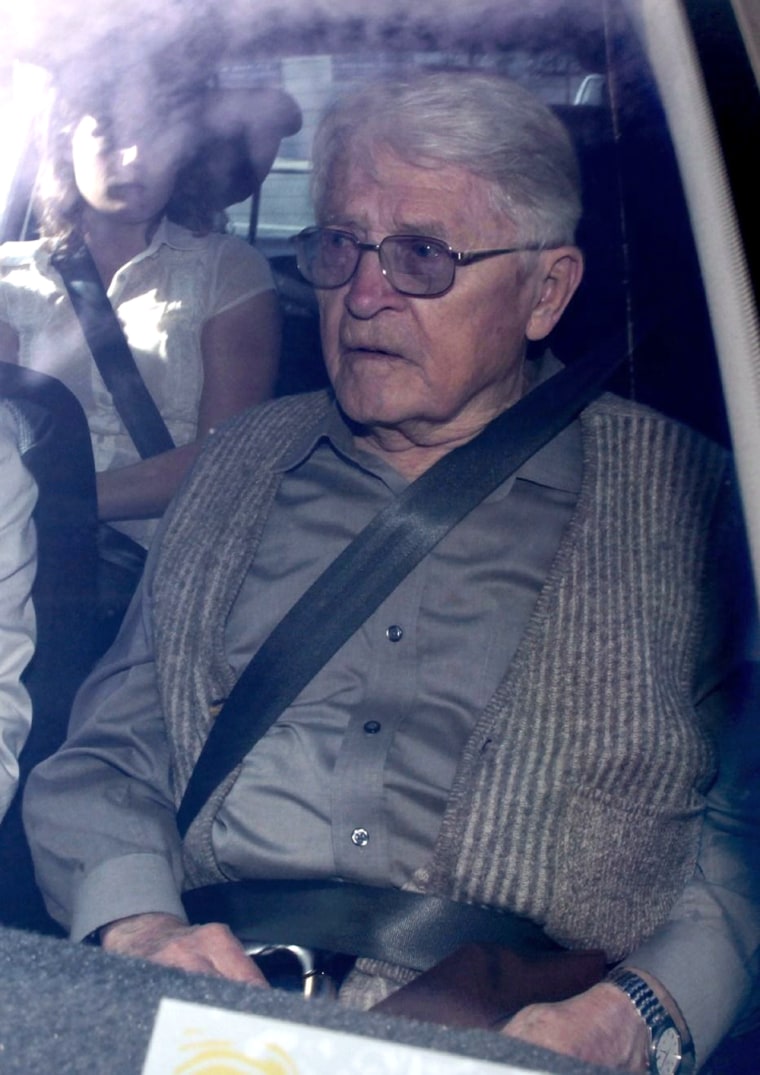The Australian government on Thursday approved the extradition of an alleged Nazi war criminal accused by Hungary of a World War II killing.
Home Affairs Minister Brendan O'Connor said Australia takes war crimes seriously and will not be a haven for alleged criminals.
Australian citizen Charles Zentai, 88, is accused by the Hungarian government of being one of three men who tortured and killed a Jewish teenager in Budapest in 1944 for failing to wear a star identifying him as a Jew.
Zentai, who emigrated to Australia in 1950, says he is innocent and was not even in Budapest at the time. He turned himself in to Australian police in the western city of Perth last month after exhausting his legal appeals.
"My decision is not one of determining Mr. Zentai's guilt or innocence," O'Connor said. "It was about deciding whether or not Mr. Zentai should be surrendered to Hungary in accordance with Australia's extradition legislation and its international obligations."
Hungary has two months to carry out the extradition.
Zentai's son, Ernie Steiner, said he was shocked by the government's decision and had spoken with his father's lawyers about taking legal action in an attempt to overturn the decision.
"We will exhaust all avenues," Steiner told reporters. "There's issues about whether Hungary can provide a fair trial for my father in the absence of any living witnesses."
Steiner said he had not spoken to his father since the government's announcement.
Zentai can still appeal to the Federal Court to review O'Connor's decision.
'Light at the end of the tunnel'
Hungary will wait until all of Zentai's appeals are exhausted before taking any further steps on the extradition, said Lipot Holtzl, head of the Hungarian justice ministry's international cooperation department.
Efraim Zuroff, director of the Simon Wiesenthal Center's Jerusalem office, welcomed O'Connor's decision.
"We're finally beginning to see the light at the end of the tunnel," Zuroff said by telephone from New York City.
"It's important to remember that the passage of time in no way diminishes the guilt of the murderers in the Holocaust," Zuroff said. "The victims of the Nazis and their collaborators are just as worthy today that their killers be brought to justice as they were when the crimes were committed."
Zuroff, who first tracked down Zentai five years ago, said that the lack of living witnesses would not impede a fair trial.
"I think the evidence is quite unequivocal and the issues are all issues of law," Zuroff said. "Let the court make its decision."
A warrant was first issued for Zentai's arrest in 2005. An Australian court ruled last year that Zentai was eligible for extradition, but his poor health has kept him out of custody. He appealed the court's decision in March and again in October and lost both times.
Zentai is listed by the U.S.-based Simon Wiesenthal Center, a Jewish rights group, among its 10 most wanted suspected former Nazi war criminals for having "participated in manhunts, persecution, and murder of Jews in Budapest in 1944."
